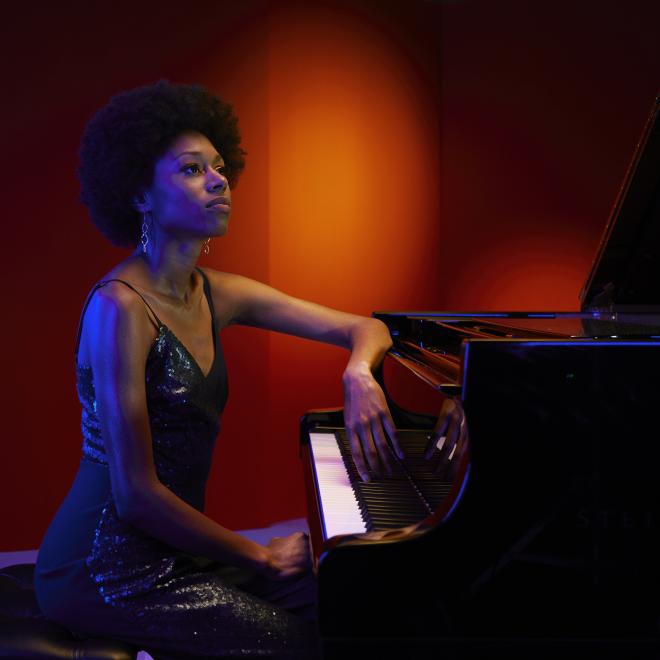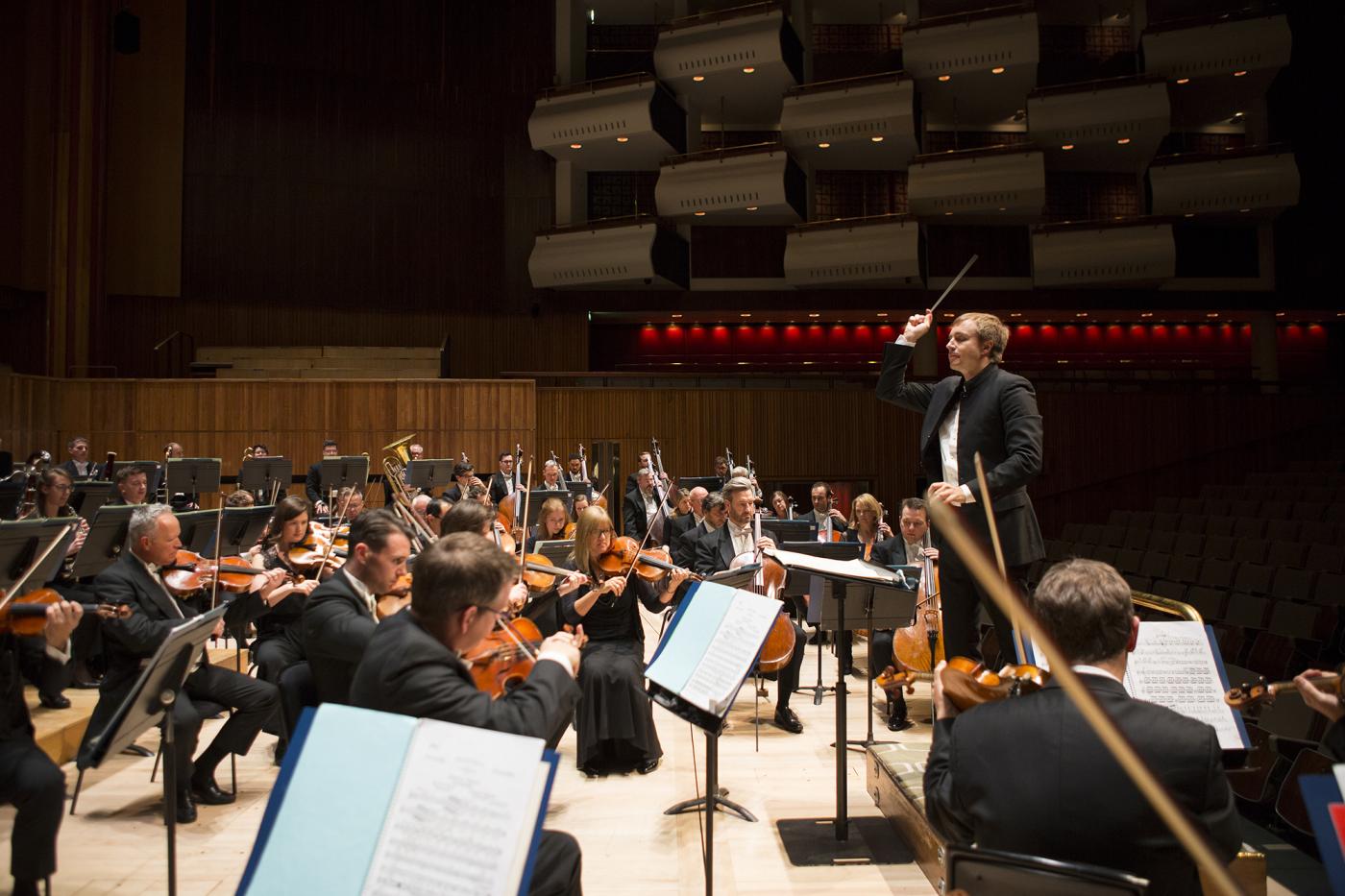Born into a musical family, Isata Kanneh-Mason is a British pianist that has risen through the musical ranks ever since a performance with Sir Elton John in 2013, which led the pop icon to pay her tuition at the Royal Academy of Music. Isata has performed throughout her native England, and internationally in recitals, with orchestras, and her 2021 album Summertime showcasing American composers was in our Season 3 episode on recommended new releases.
She returns to the Washington DC area this month, this time joined by the Royal Philharmonic Orchestra for a performance of Sergei Prokofiev’s Piano Concerto No. 3 in C major, Op. 26 on January 28 at George Mason’s Center for the Arts in Fairfax, VA. This concerto presents technical and musical challenges above and beyond most repertoire. But despite its demands, it isn’t a flashy showpiece like something out of The Carnival of Venice. Prokofiev writes in such an imaginative and idiomatic way that the music is served first (although the soloist is probably feeling butterflies in their stomach followed by a sense of relief with the final chord!).
Isata was gracious enough to answer some questions I had before her upcoming January 28 performance in Fairfax.
John Banther: Welcome back to the United States, Isata! Have you spent time in the Washington DC area before? If so, do you have any places you like to visit or eat?
Isata Kanneh-Mason: I have been to Washington DC once before but as it was quite a short trip, I haven’t built up a roster of familiar places so I will still be exploring!
JB: Prokofiev’s 3rd piano concerto, completed in 1921, puts many demands on the soloist and the orchestra. The colors the orchestra brings and how Prokofiev pairs the orchestra with your part isn’t like a lot of other concertos. Did you do anything to help prepare for going from the practice room piano to playing this with an orchestra when you initially learned it? Did it present any unique challenges compared to something that might sound more straightforward from the 18th century?
IKM: The best thing is to be completely comfortable and on top of your own part before the rehearsal with orchestra as there’s so much to think about with the piano part itself and so many notes to navigate. I like to feel I have that fully under my fingers before I am able to be free and dance in and out of the orchestra part which is what the piece requires.
JB: Is this the kind of concerto where you have many conversations with the conductor before the first rehearsal? It sounds like there are too many musical decisions to leave them to the first rehearsal. What kinds of things were important for you to be settled before rehearsing?
IKM: A meeting with the conductor is definitely needed before the first rehearsal. There are many tempo changes where we need to look at each other and so it’s vital to clarify that before the first rehearsal with the orchestra.
JB: Do you remember the first time you heard this work? Could you have imagined you would be on stage performing in the not-too-distant future?
IKM: I was 18 when I first heard this piece, and it was a performance by Yuja Wang on YouTube. I instantly fell in love with it and dreamed about playing it. It was another 8 years before I started learning it for my first performance but before then I would listen to many recordings and sometimes flick through the score for fun.
JB: Is there a particular moment in the concerto that you look forward to in every concert?
IKM: Yes! I look forward to the scalic moment in the first movement that leads into the recap. It’s a brilliant moment which builds and builds and then all of the strings join in.
JB: Is there anything in this concerto you wish other composers did too?
IKM: I think there are many moments of sharp rhythmic “question and answer” with the orchestra in this concerto which are fun to play and I would love it if this sort of figure appeared more often in concerto repertoire.
JB: Is there anything in this concerto that was surprisingly challenging?
IKM: Yes. In the third movement there is a sweeping romantic tune that is shared with the cello and eventually all the strings. For some reason it’s hard to put together, and just much harder than it sounds!
JB: Prokofiev wasn’t ecstatic that, in his own words, American audiences “did not quite understand the work” compared with the French and English audiences. How has the reception been so far?
IKM: So far it’s seemed that everyone loves the piece and it’s been met with a lot of enthusiasm, enjoyment and joy. I suppose things have changed since Prokofiev’s time!
JB: What are you excited for in this performance at the Center for the Arts in Fairfax, VA?
IKM: I’m excited to see this hall for the first time and to hear how the piece sounds in a new space. Every audience reacts slightly differently and it’s always exciting to bring this piece to new people.
JB: Do you have a particular message for your audience or something you think they should know before the concert?
IKM: I really enjoy performing this piece and it’s a great play for the orchestra as well. I really hope that the audience can feel that excitement and enthusiasm from the players on the stage and also feel part of the concerto’s atmosphere.
PBS PASSPORT
Stream tens of thousands of hours of your PBS and local favorites with WETA+ and PBS Passport whenever and wherever you want. Catch up on a single episode or binge-watch full seasons before they air on TV.

